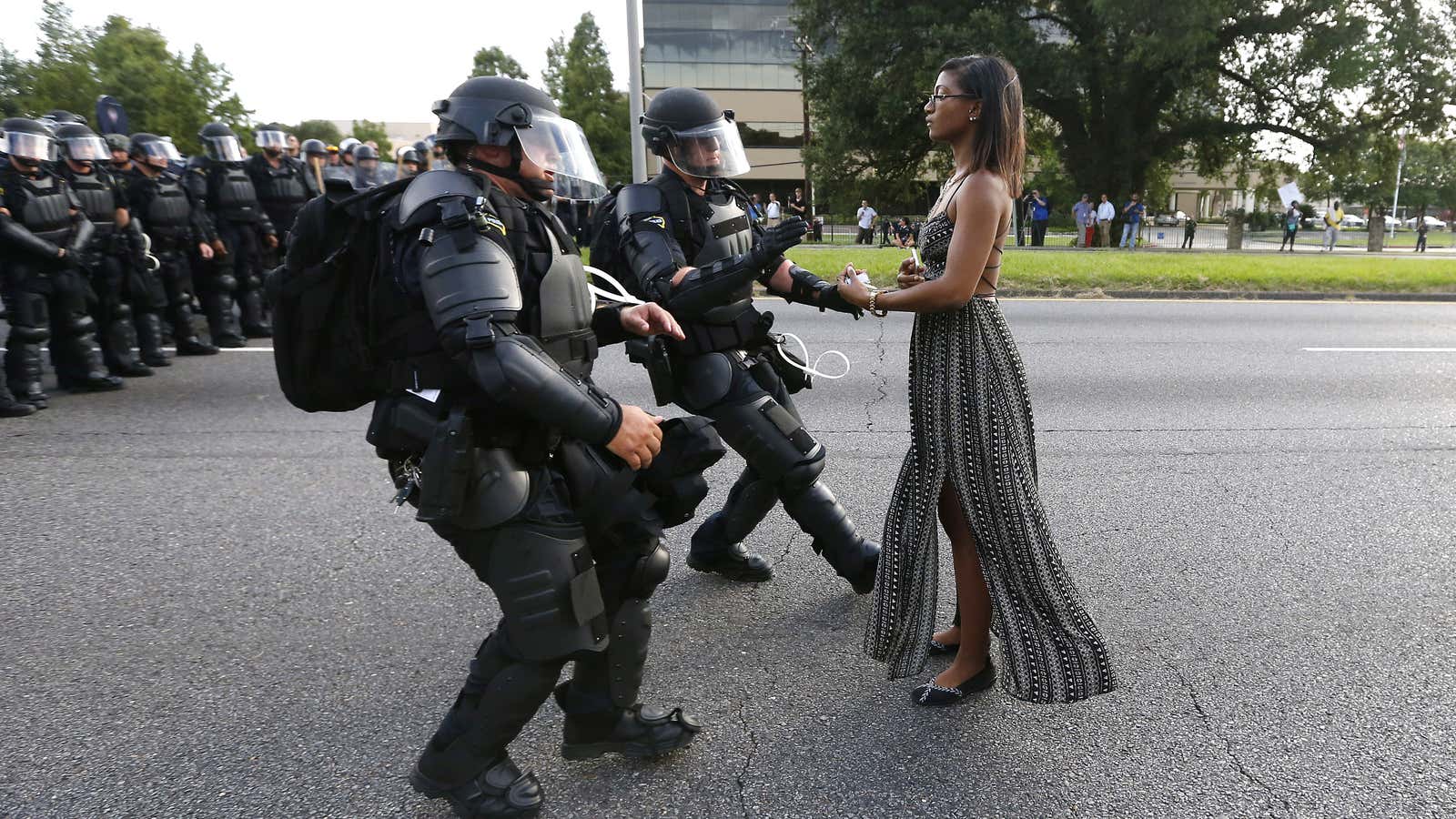There’s the world we would like to live in and then there’s the world we’ve got. For very few people, especially in 2016, do those two intersect.
Just look at the news in the last few weeks: the many mass shootings in the US, the racist reactions to Brexit, the bus attack in France, the military coup in Turkey…the list goes on.
It’s natural to let this fear spur anger and hatred for those who we feel threatened by. And when we do, we enter a vicious cycle, where anger and hatred beget more of the same. Waleed Aly, an Australian news anchor, wants us to break out of that. And he explains how in simple and powerful words.
“I’m talking about assuming the best in people, showing others radical generosity in the face of their hostility, even when it hurts,” Aly said.
Aly is onto something, and psychology backs him up. It’s easy for us to mirror our reactions to situations based on how others approach us. It’s called complementary behavior (paywall), and it means that if someone greets us with kindness, we’ll likely respond the same way. Conversely, if we’re faced with hostility, we’re more likely to flare up and fire back.
But there’s a way to break the cycle: non-complementary behavior. It’s much harder, but it can make all the difference.
Imagine you’re at a dinner party and a man with a gun walks in to rob you. How would you respond?
Michael Rabdau’s response in such a situation was, naturally, to be scared—very scared. But then another guest did something unusual. As the Washington DC resident describes in an episode of the podcast Invisibilia, the guest reached out to the robber and said, “Would you like to share a glass of wine with us?”
To everyone’s surprise and relief, when treated kindly, the robber calmed down, apologized, and left without hurting anyone or taking any money.
Sometimes non-complementary behavior can be detrimental to us. Christopher Hopwood, a psychologist at Eastern Michigan University, notes in NPR that always being warm to a cold person can make someone a pushover. Alternatively, you could appear disingenuous or manipulative, which could continue to foster distrust and hostility.
Now, however, doesn’t seem like one of those times. When we are met with hate, we have to remember that those who are angry are likely afraid. When someone buys into the rhetoric, every Muslim might seem like a terrorist or every white police officer an enemy. Even if they know rationally that’s not true, fear trumps the logic. The real trouble is such people are worried that their concerns aren’t being heard. Rather than dismissing them as hotheaded and ignorant, we need to try to listen to those who disagree with us and understand them. If differences can’t be resolved, it’s best to part company peacefully.
It may be harder to see those we disagree with in a compassionate light, but it’s probably the most important thing we can do right now. If nothing, you’ll have the satisfaction that you did your best to make a small part of the world a little less awful.
